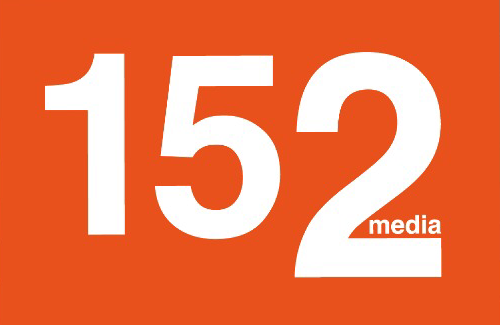How to Start a Website Flipping Business?
-
 By Editorial Staff
By Editorial Staff
-
15 August 23
What is Website Flipping?
Website flipping is the practice of buying and selling websites for profit. It typically involves obtaining underperforming websites, and enhancing their overall value through various improvements in functionality, design, SEO and user engagement. The goal is to present your online resource as a valuable asset to potential buyers. To successfully flip a website requires due diligence and digital literacy: it can be a good income avenue for those who have an understanding of the market, which is generally determined by the ability to identify a valuable website, followed by the skills to improve it. That said, website flipping is a lucrative business model that has the potential for relatively fast returns. This is a step-by-step guide on how to start a website flipping business, along with its associated risks for consideration.
Summary
-
How to Start a Website Flipping Business?
- 1. What is Website Flipping?
- 2. How to Start a Website Flipping Business?
- 3. The Risks Associated with Website Flipping:
- 4. The Bottom Line:
How to Start a Website Flipping Business?
- Acquire the knowledge and skills: Successful website flipping combines digital literacy and market insight, along with skilled entrepreneurship. Start by developing your digital marketing skills. Learn to improve traffic, revenue and content to optimize your website’s end value.
- Research your niche and target audience: Streamline your process by researching an industry that has your interest, and start by purchasing websites related to that field. It could be anything from the food industry to apparel or the technology space.
- Find a potential website to flip: Identify which websites are underperforming, have future potential, or are in need of improvements, and buy them from online marketplaces or directly from their owners. Platforms like Flippa, Sedo, Empire Flippers and others have diverse listings for sale.
- Assess the website: At this stage it is important to employ your knowledge and skills to vet a website thoroughly, prior to making an offer. This process helps you evaluate a website’s traffic, revenue and content to identify its potential for growth, or its possible limitations.
- Make an offer: Once you are ready to make an offer, employ your negotiation skills to get yourself a favourable deal. Ask any final questions, be strategic with your bargaining. Alternatively, brokerage or merger and acquisitions firms exist to negotiate a deal on your behalf for a commission.
- Improve the website: Your ability to improve a website is typically dependant on your skillset and creativity. Optimize the website for search engines and implement digital marketing techniques to boost its visibility and traffic. Improve its design, content, SEO and functionality. This will increase its value and potential profitability.
- Invest in marketing: Make a budget to invest in advertising and promotion to attract more potential buyers. List your website on popular online marketplaces such as Flippa, Sedo, Namecheap Marketplace or GoDaddy Auctions to fast-track sale. Consider running targeted ads, etc to widen reach.
- Sell the website: Sell your website on a website flipping marketplace or through private sale. Valuation processes offered by online platforms can be incredibly useful in determining your website’s value, to get you a fair market price.
- Repeat: Once you have successfully flipped a website, you can repeat the process to build a portfolio of profitable websites. Continuously improve your skills and stay updated with the latest trends and technologies in website design and development.
The Risks Associated with Website Flipping:
As with all businesses, there are some risks associated with website flipping:
- The Market Risk Factor: The market for websites can be unpredictable. Changes in technology, search engine algorithms, or economic conditions can significantly impact a website's value.
- Competition Risk: It poses the threat of high competition, which in turn may drive up website prices, impacting profit margins.
- Investment Risks: There is a risk that the investment in a website may not yield the expected return. A website may not generate the desired traffic or revenue or sell for the expected price.
- Technical Risks: Optimizing a website involves technical risks. Without the essential know-how, changes to a website could damage its functionality, design, or SEO.
- Time Risk: Flipping a website can yield quick profits but can also be potentially time-consuming. Finding the right website to improve and sell can involve a significant waiting period.
- Legal Risk: There are some legal risks that accompany website flipping. Infringing on third party copyright or trademark issues may violate a website's terms of service, resulting in legal action.
The Bottom Line:
The website flipping journey can be a fascinating and engrossing endeavor. While it is a potentially lucrative income avenue, it requires due diligence, a keen awareness of market trends, along with technical and entrepreneurial skills to build a portfolio of digital assets. With the right strategy and approach, minimizing the risks and building a successful website flipping business is within reach.
| Recommended Software | Category | Why Choose? | Signup URL |
|---|---|---|---|
| Setupad | Website Monetization | High CPMs, On time payments | Signup here |
| Adsterra | Website Monetization | AdSense alternative, niche CPMs | Signup here |
| Beehiiv | Email Monetization | Additional revenue, High CPMs | Signup here |
| Semrush | SEO | High impact on SEO and traffic | Signup here |
| Frase.io | AI SEO | Affordable, Boosts SEO traffic | Signup here |
| WP Rocket | Speed Optimization | Affordable, Boosts Pagespeed | Signup here |
Blog FAQs

Editorial Staff at Publisher Growth is a team of blogging and AdTech experts adept at creating how-to, tutorials, listings, and reviews that can publishers run their online businesses in a better way.
View All PostsOur Editors’ Pick:
Browse these amazing publisher monetization tools handpicked by our team of editors

















.webp)





 (1).webp)


